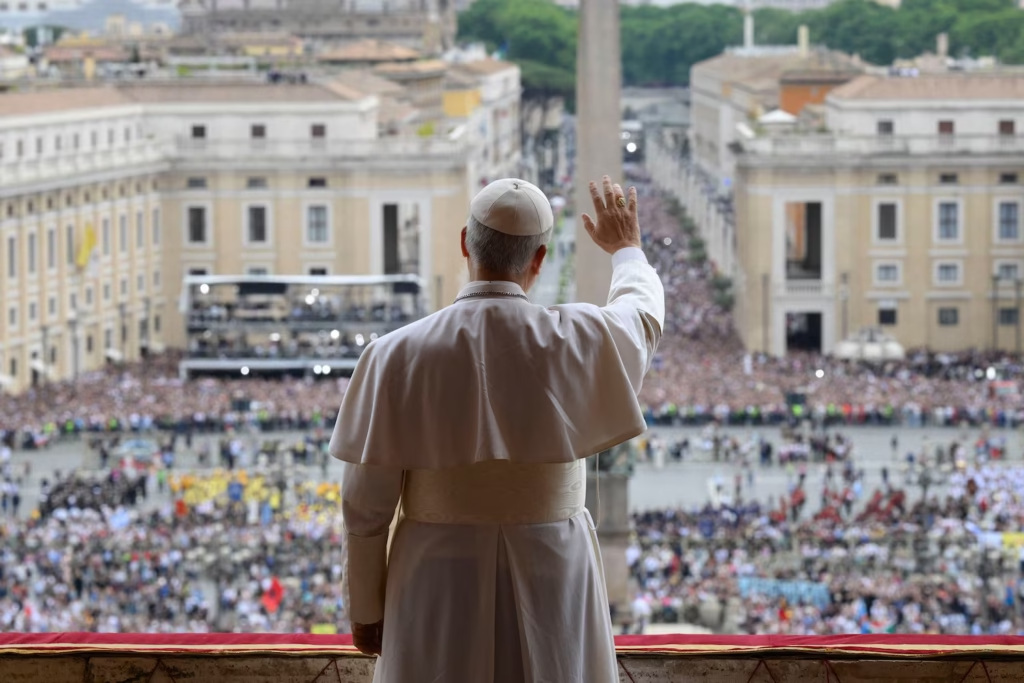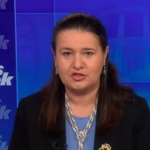In a moment of historical significance, Cardinal Robert Prevost, an American from Chicago, was announced as the 267th pope of the Roman Catholic Church, marking the first time in the Church’s history that an American has assumed the highest office. His election was confirmed when the Sistine Chapel’s temporary chimney released a plume of white smoke on the evening of Thursday, May 9, 2025, signaling to the world that the 133 cardinals had reached a two-thirds majority to elect a new pope. The announcement was met with cheers from the gathered faithful, eager to witness the selection of a leader to guide the Church in a time of global challenges and change.
Cardinal Prevost, now Pope Leo XIV, is seen by many as a diplomatic figure who can help bridge divides within the Church while also engaging with the outside world. His election signals a shift in the global representation of the papacy, as he becomes the first pope from the United States. For many, the news is groundbreaking, both in terms of its geographical implications and the potential direction it could take the Catholic Church in the 21st century.
His first words as pope were solemn and filled with a sense of peace, reflecting his deep faith and commitment to his new role. “This is the first greeting of the risen Christ. May the peace be with you,” Pope Leo XIV said in Italian, addressing the congregation of cardinals, religious leaders, and faithful gathered for the momentous occasion. The simplicity of his statement, coupled with the profound weight of the occasion, resonated deeply with those present. It was a message of unity and peace—qualities that Pope Leo XIV has long been known for.
Cardinal Prevost’s election comes at a critical time for the Catholic Church, as it faces a number of internal and external challenges. The Church has long struggled with a crisis of trust, with clergy sexual abuse scandals continuing to plague the global community of believers. Moreover, there has been ongoing debate over the Church’s position on a variety of social issues, including its stance on LGBTQ+ rights, women’s roles in the Church, and the Church’s response to climate change. Pope Leo XIV, with his diplomatic background, is expected to play a crucial role in navigating these complex issues and restoring the Church’s credibility and moral authority.
Born in Chicago in 1956, Cardinal Prevost was known for his compassionate leadership and commitment to ecumenism throughout his career. He has served in various capacities within the Church, including as a priest, bishop, and cardinal, earning respect for his ability to bring people together and foster dialogue among diverse groups. His background as a theologian and pastoral leader, combined with his diplomatic experience, makes him a uniquely qualified leader for the challenges that lie ahead.
In his role as bishop, Cardinal Prevost worked closely with various interfaith organizations, focusing on promoting peace and mutual understanding between different religious communities. His experience in this area will undoubtedly be an asset as he takes on the papacy. Pope Leo XIV’s commitment to dialogue, inclusivity, and understanding will be key as the Church seeks to engage with a rapidly changing world and address the concerns of younger generations of Catholics.
His election is also a moment of pride for American Catholics, who have long been a significant part of the global Church. The United States, with its growing Catholic population, now has its first pontiff, signaling a new chapter in the relationship between the Church and the United States. Pope Leo XIV’s election represents a breaking of barriers and an acknowledgment of the diverse cultural backgrounds that make up the global Catholic community.
The selection of the name Leo XIV is also noteworthy. Historically, the name Leo has been associated with several prominent popes, most notably Pope Leo I (St. Leo the Great), who is remembered for his role in defining the nature of Christ and strengthening the authority of the papacy. Pope Leo XIV’s choice of name may indicate his intention to continue the work of his predecessors, building on the legacy of strong papal leadership while addressing the evolving needs of the Church.
As Pope Leo XIV takes office, there is an air of anticipation about the direction he will take the Church in the coming years. There is no doubt that he will face significant challenges, but his diplomatic skills and commitment to peace and unity offer hope that he will guide the Church with wisdom and compassion. His election has been widely celebrated as a step toward greater inclusivity and understanding, not only within the Church but also in the broader world.
The timing of Pope Leo XIV’s election is also significant in the context of current global events. The world is facing unprecedented challenges, from the ongoing COVID-19 pandemic and climate change to increasing political divisions and social unrest. The Catholic Church, with its global reach and influence, has a unique opportunity to be a force for good in addressing these challenges and fostering greater unity and solidarity. Pope Leo XIV’s diplomatic experience will likely be an asset as he engages with world leaders and calls for greater cooperation in tackling the pressing issues of our time.
For the faithful around the world, the election of Pope Leo XIV represents a new era in the papacy—one characterized by hope, unity, and the promise of peace. His leadership will be closely watched as he works to guide the Church through its most difficult moments and inspire Catholics to live out the values of love, compassion, and service that are at the heart of the faith.
In the days and weeks to come, Pope Leo XIV will likely continue to make headlines as he takes on the responsibilities of the papacy. His words and actions will undoubtedly shape the future of the Catholic Church, and his leadership will be closely scrutinized by both his supporters and critics. However, there is no doubt that his election marks a moment of great significance for the Church, and for Catholics around the world, his papacy represents a symbol of hope and renewal.
As the world watches, Pope Leo XIV will embark on his journey as the spiritual leader of more than a billion Catholics. His vision for the future of the Church, shaped by his experiences and values, will guide his decisions in the coming years. With the weight of history on his shoulders, Pope Leo XIV is poised to make a lasting impact on the Catholic Church and the world.


